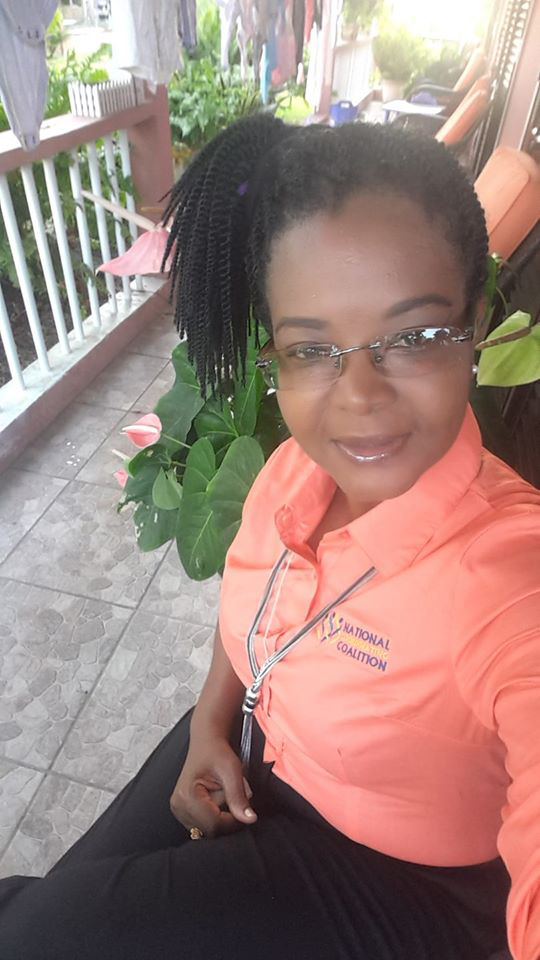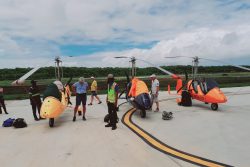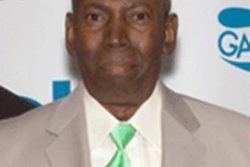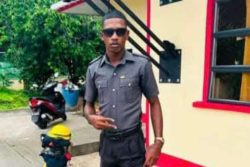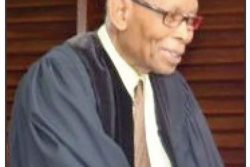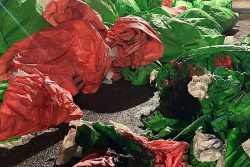The debilitating physical and emotional pain of an HIV-positive mother of six, which she witnessed as a young 17-year-old work study student in a private hospital, pushed Simone Sills into the world of nursing and long years after that woman died she has lived on through Sills’ work that has been centred around HIV and AIDS.
It has been over 30 years since she had that experience, but tears still flow from Sills’ eyes when she speaks of the woman, whose name she remembers.
“That one woman has lived with me,” she told Stabroek Weekend in a recent conversation. “I was not even a professional nurse at the time. I was doing work study when I met that patient. I was only 17 years old at the time.”
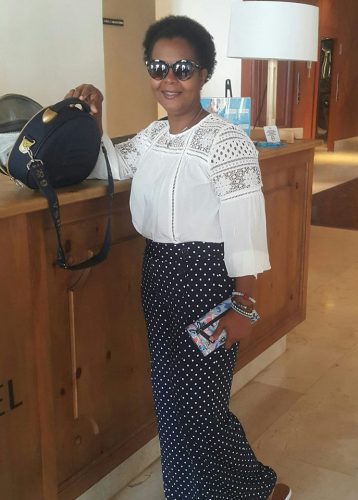
She recalled that the woman lived in Tiger Bay and on the insistence of the doctor her partner had taken her children to her bedside as she lay dying. She remembered how the woman’s face lit up even though she was in obvious pain and she had words for all her children, all of whom were under the age of 13.
“I have carried that woman and her situation throughout my life, and I have always wondered what happened to her children. … The doctor at the time was amazing. She was emaciated and he sat and held her hands and coached her through what to say to the children. Of all the patients I have met, that woman lived with me,” she shared, as she dried the tears that were freely flowing.
That experience solidified Sills’ career path and started her on a journey that if she had the opportunity, she would not refuse to take. While over the years she has moved away from bedside care, Sills has always worked towards bettering the lives of HIV infected persons. Today as Executive Director of the National Coordinating Coalition (NCC) she continues that line of work.
“Nothing I have done over the years took me away from nursing but rather it has helped me to extend that passion and care outside of the hospital room and I cannot see myself doing anything different,” she said.
The NCC is a registered NGO that is the coordinating body for some 38 other NGOs with optional membership. The NCC is an independent organisation and so are its members. It provides technical assistance to partners and non-partners and the partnership is centred on institutional strengthening, shared advocacy and resource mobilisation.
Its history goes back to 1999 and that partnership started with six NGOs working and collaborating in response to HIV. Since then the partnership has evolved to respond not just to HIV but to many other issues. The history of the NCC as it relates to the response to HIV has come a long way but there is still lots of work to be done. The involved NGOs, according to Sills, through partnership with the Ministry of Public Health, are providing more than 50% of HIV services.
‘The beginning’
“The beginning,” as she put it, of her public health interventions and working with people infected with and affected by HIV was 19 years ago, when Sills joined Youth Challenge Guyana as its HIV/AIDS programme coordinator.
“I am a nurse by profession and everything I have done is a spinoff of my nursing career, that passion for helping is what propelled me,” she said.
While as a bedside nurse she came into contact with patients and their families and tried as much as she couldto comfort them as well provide healthcare. Getting on board with Youth Challenge, Sills said, gave her the opportunity to provide a continuum of care for persons. It was not only about providing treatment for HIV but building of the support system of care for infected persons and their families. The job also entailed her training young peer educators across several regions in Guyana and she worked specifically in Regions 1, 8 and 9 at the end of which there were peer educators from all those regions.
“It was an entire network of people working towards a common cause,” she said of the team.
She remained at that position for about four years and as she puts it things just “snowballed from there,” which saw her working with the popular ‘Ready Body’ project that involved several NGOs.
Sills then moved on to the USAID/Guyana HIV/AIDS Reduction and Prevention Project (GHARP), which was a four-year collaboration between the governments of Guyana and the USA to enhance Guyana’s response to HIV/AIDS. Her position at GHARP provided her the opportunity to work with more national partners and it involved training health professionals and working with the Ministry of Health and to ramp-up treatment from entry level to lifelong care for persons living with HIV.
Trainers were trained and there was the implementation of the prevention of mother-to-child transmission treatment, as part of the treatment regime. Under the programme, a select corps of doctors were trained to interact with, identify and help patients to navigate that lifelong treatment as it is difficult to remain on treatment when you feel healthy.
Case navigators were also trained to provide home-based support for persons in between visits. “It required that entire village… and it really gave me the opportunity to work on something that is truly special where you see so many people come together for one cause,” she said of the experience.
From those years she also gained a lot of experience in project management and in keeping with her personal goal she ensured that she learned and walked away with more skills than when she joined.
Armed with more skills and experience Sills was then propelled to the post of Programme Manager of Health US Peace Corps Guyana, where she remained for some eight years. Through her work there she now considers herself “blessed” because she worked and travelled the entire Guyana. Her work also saw her supporting international volunteers in the health sector in every region in Guyana and she remembers that when she first heard the job description of the position she knew it “was perfect for me” as it provided her with the opportunity to really take her learning from all the years from the different positions she has had and to bring it all together in one place.
Always one looking for a new challenge, Sills later joined the NCC, which was the brainchild of the then of the USAID Mission Director Dr Carol Becker with Peace Corps volunteer Julia Rehwinkel-Roberts also playing a vital role in its establishment.
It all started with the six NGOs working together on a collective proposal to fight HIV and AIDS and it progressed from there with the numbers of NGOs involved increasing as the years went by and it became a part of the national programme.
“The NGOs continued to do the work on the ground and the private sector and public sector came on board by having training in workplace policy on HIV and AIDS and supporting employees with HIV,” she said.
That project, the first that NCC members put together, created the blueprint for what evolved and became part of what is now is the national health system in terms of how persons living with HIV are treated and cared for.
Hopes for a cure
Over the years, Sills has seen it all when it comes to HIV and AIDS in Guyana. She has witnessed the struggles and the triumphs of persons infected and affected and today her hope is that someday soon there will be a cure for HIV.
“I want to be part of that support system for those persons who are living with the disease to ensure that they are there when the cure is found,” she said.
Sills herself struggled, because even as she worked towards helping, she could not help everyone and there were frustrating days, but what kept her together was the wonderful self-support system she has and also her very supportive family.
Her late husband, Elton Gregory Sills, and her colleagues were her support system as she found them to be people to whom she could speak to freely without fear of judgment and they were those who also provided needed laughter after a hard day.
“One of the important things is that you need to be happy and one of the things that helps is being in a non-toxic work environment; that is essential. When you are working in such areas you cannot be in a toxic environment so those are the things that keep me going,” she shared.
Her husband, who was the father of her two now adult children Leeann and Darren, passed away seven years ago and Sills said that was her rock-bottom moment. But she could not have imagined the level of support she received at that critical point, which helped her to pick up the pieces and move on.
Death has been with Sills for many years, as she shared that both of her parents have passed, and she is just one of three of their eight children who are still alive. “And I am just 52,” she noted.
“I tell people what kept us [she and her siblings] is those good memories of family time together. You shouldn’t take family for granted, at the end of the day it is those good memories that stay with you forever even when those persons would have left,” she said.
Looking back, Sills believes that she is living her careers of her childhood dreams as she wanted to be a teacher as well as a nurse. She is a nurse by profession, but her work has taken her into the realms of teaching, for which she is grateful.
She said her life is still coming together as it relates to the purpose of what her profession ought to be and as the journey continues, she is enjoying it.
“I encourage people to do the things you want to wake up doing every day and you will be happy,” she said smiling.
As she looks forward, Sills said she is hopeful and believes that strides have been made in the right direction in the area of HIV and AIDS but there is still more work to be done and it will have to continue so long as the disease there.
“There is new growth every day and that education and kindness, it must continue if we are going to really attain the 90-90 target,” she said.
In 2014 the Joint United Nations Programme on HIV/AIDS (UNAIDS) and partners launched the 90–90–90 target with aim to diagnose 90% of all HIV-positive persons, provide antiretroviral therapy (ART) for 90% of those diagnosed, and achieve viral suppression for 90% of those treated by 2020.
